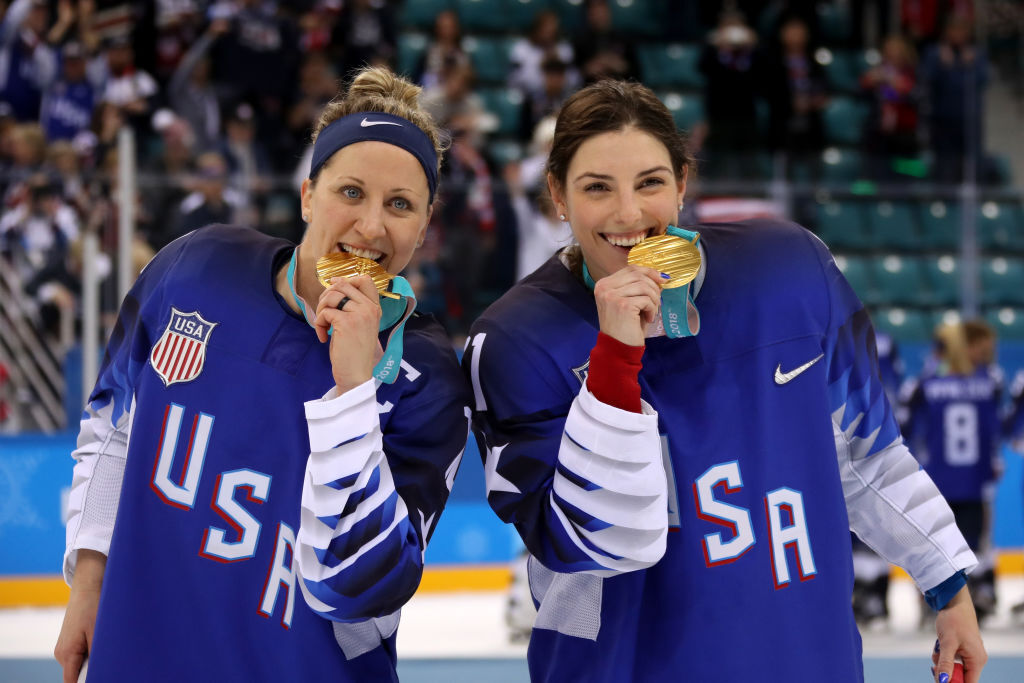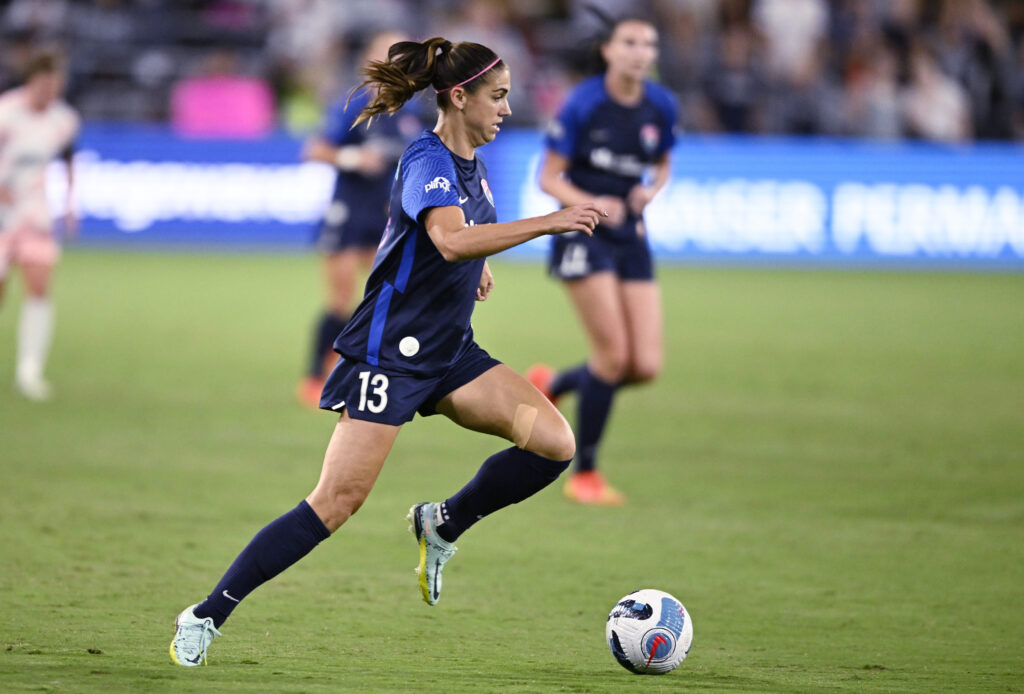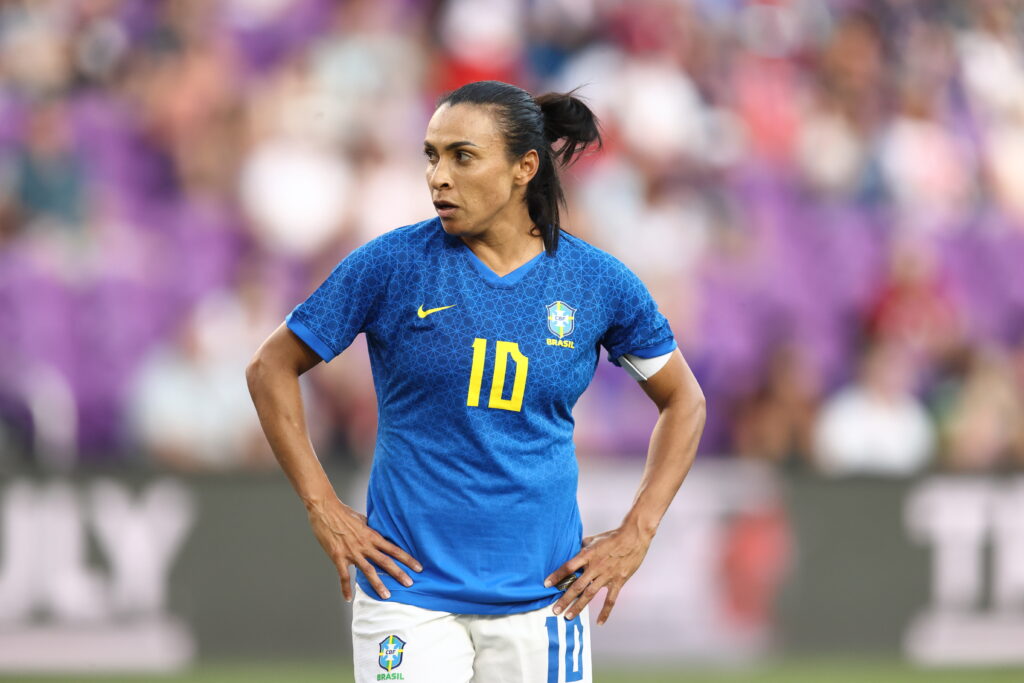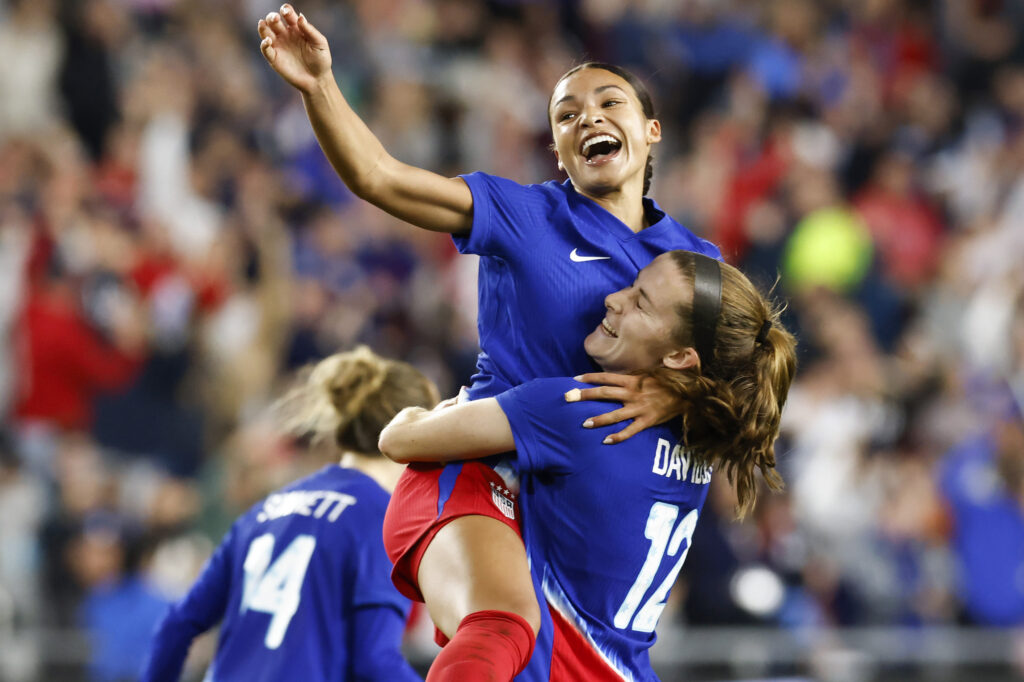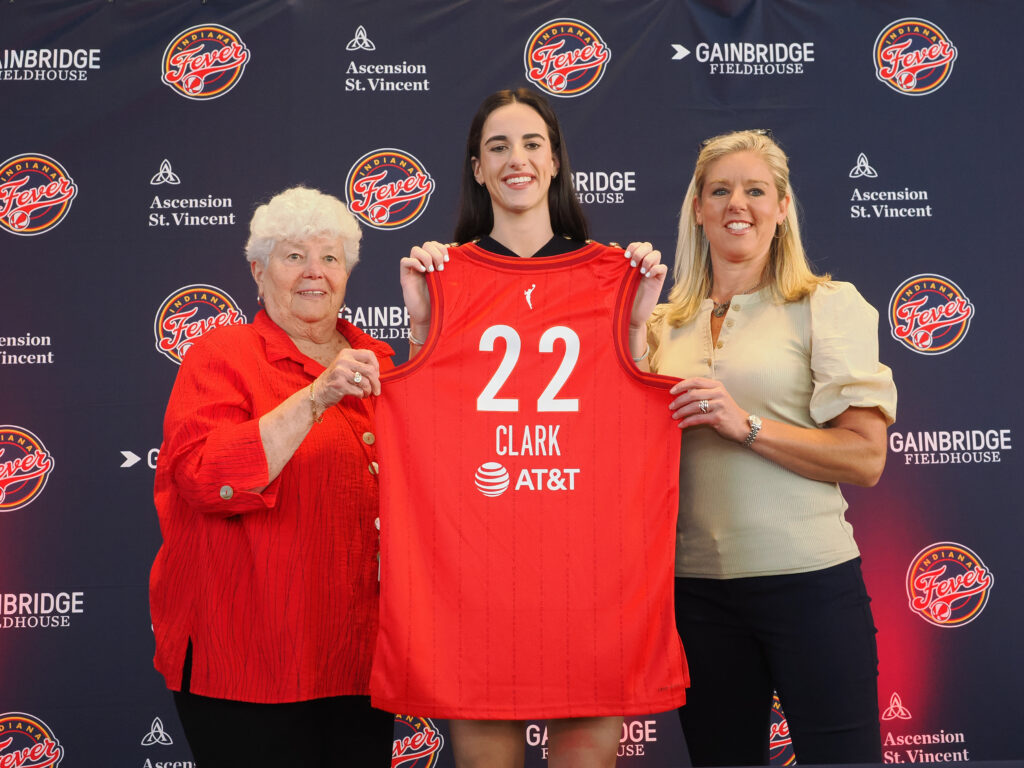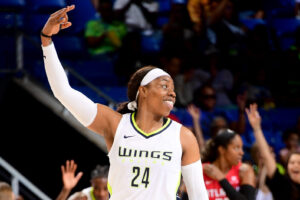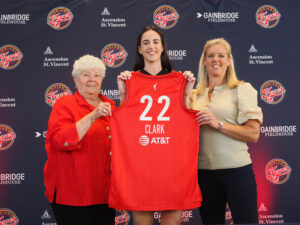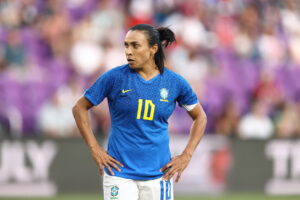Meghan Duggan recently retired from her decorated career as an American ice hockey player. During her 14-year tenure on Team USA, she captained the US women’s hockey team to their first gold in 20 years at the 2018 Winter Olympics, and won two silver Olympic medals as part of the 2010 and 2014 U.S. women’s hockey team. Duggan also won seven gold medals at the world championships.
What have you been reflecting on these past few weeks after announcing your retirement?
I’ve just been looking back on all the wonderful experiences and opportunities I’ve had and reflecting on all sorts of aspects of my career. Mainly, it’s been so fun to have some laughs with teammates. Obviously we’ve had wonderful opportunities with each other standing on podiums, and have been through a lot of adversity together. It’s been really fun to reflect on all the road trips, the hotels, dumb things that we did just to have fun or pass the time, and card games.
What are the conversations that you’ve been having with your now former teammates since making the announcement?
I’ve been just so blown away and overwhelmed with some of the kind words that my teammates shared with me. Throughout my career, people have been the cornerstone. The people are the center of everything — my teammates, my family, coaches, organizations, fans, young girls — and it has been amazing to hear kind words from all these people, whether it was my impact on them or different experiences that we had together. I cried multiple times (happy tears). For some of the players who have been on the national team for 10 plus years together like Hilary Knight or Kacey Bellamy — we’ve been through a lot together through the ups and downs. Having conversations about that has been great.
We have a close relationship with Hilary — she’s actually one of our athlete partners. You’re both pioneers in the sport and obviously have a close relationship, which is cool to see!
It’s hard to put into words what the two of us have been through together while we were both on the national team for so long. We talked a bit about how we’ve grown up together through the sport. It’s been special, and we’ve leaned on each other a lot. I thank her for the role she’s played in my life and career. Hilary and some of the other women on the team — these are relationships that last a lifetime. I’m really thankful.
When you look back on winning Olympic Gold in 2018, what stands out? What are some of your favorite moments from that tournament?
When I think back to that win, the games, the team, and the ride that we went on four years leading up to the games, I just think of unity. I think of how we had to transform together as a group. We did everything as a pretty tight knit group. It wasn’t always easy: We hit bumps along the way and we faced a lot of challenges. We had to deal with adversity off the ice with our plans for boycotting the World Championships in 2017. The unity along the way was such an unsung hero for us. To cap it off by being united on the ice and celebrate together as a team, and with our families… it was just really special.
In your piece for ESPN, you highlighted your negotiations with USA Hockey in 2017 as a highlight of your career. Can you explain to those who don’t know what happened there and why it was so instrumental for both you and the team?
I think it was crucial for our team, our sport, and girls and women in all other industries to see what women can achieve through unity and collaboration. We were seeing inequities with regards to the support of the women’s team. After a while, enough was enough. We had to come together and come up with a plan and move forward. That’s one of the things for which I’m super proud of our team. It will definitely be a legacy of the group, and it really fills me with pride.
The contract you negotiated expires next year. What are your hopes for the next round of negotiations?
My hopes are that both sides can agree that the terms that we came to previously were awesome, and that these terms were really good for our sport and for girls and women everywhere. We only need to continue to work together to drive it forward. Certainly, we’ve come a long way and made a lot of changes, but there’s a lot more ground to be made. My hope is that we can conquer some of those changes as well.
Do you have any advice for the players involved in those negotiations?
It’s all about unity. Unity doesn’t mean you have to think the exact same way or understand everything in the exact same way. But you have to be open and honest, have conversations, and mobilize together. That’s something that was really important for our group, and the reason why we were able to accomplish what we did.
I know that you and your wife welcomed your first child, George, in February. I am sure he keeps you all busy. In addition to your duties as a mother, what are your plans for the near future and the long term?
I think being a new mom is at the center of my life right now, and it’s incredible. I’ve learned a lot about myself while going through pregnancy and becoming a mom. It’s the greatest thing I’ve ever done. I look forward to continuing to tackle all the adventures and challenges that come with being a mother, and putting my son in a position to thrive.
I obviously want to continue to make an impact in hockey. I think the best part is taking the space and time right now to figure out what that might look like. I will always be a champion for equality across many different avenues, whether we’re speaking about race, gender, or sexual orientation.
It’s so cool that your son is going to have two former professional female athletes to look up to. On a separate note, I read that a NHL GM position may potentially be in your future. What are your thoughts on what that path would look like?
I’ve always set really big goals for myself. When I was 10 years old, I said “I’m going to go to the Olympics and captain Team USA to a gold medal.” I think setting big goals and dreams is something I like to do for myself.
Becoming a NHL GM is certainly a big goal. There has never been a female GM of an NHL team. There’s a lot of learning I have to do, but I thought, “don’t stop now at setting big goals for yourself.” It’s something that certainly I would love to do one day, but I obviously recognize getting there requires a lot of hard work.
Athletes often have a hard time retiring because of the lack of goals and structure. How are you planning to keep motivated day to day?
Transitioning from being an elite athlete into the “real world” is known to be difficult. I think the biggest thing for me is going to be taking the space right now to really think about what I want to do next. I don’t want to just jump into something because it’s there and I don’t have structure in my life.
I want to take space and time for my family as well. Being an elite athlete is the most incredible thing in the world, but you can tend to be selfish sometimes, too. There’s a lot of me I want to give to other people, especially my family.
I don’t sit idle very well, so I imagine I’ll have my hands in a handful of different things. I plan to follow my heart, my mind, have the conversations I need to have, reach out to mentors, and hopefully have a great transition.
But, I also know it’s not going to be easy — that’s the advice that I’ve been given and I try to give all the time. No one’s perfect. You have to love what you’re doing, regardless of what it is. You have to know it’s okay to face challenges. Learning in adversity is how we move forward. I’ll see what comes at me.
Will you stay involved with the PWHPA?
The Professional Women’s Hockey Players Association is very close to my heart. For a large group of women in this country and North America who have been working on women’s professional hockey over the years, our ultimate goal and dream is to one day see girls and women be able to make a living playing professional hockey. The PWHPA is working tirelessly for this goal. I will definitely be involved in advancing women’s professional hockey in any capacity I can.
What are your long term hopes for the organization?
Simply put: a sustainable place for women to play hockey professionally and be paid a living wage sufficient to make a living. I hope women won’t have to work a hundred other jobs at the same time or live with their parents or their significant other just to be able to play a professional sport. That’s the goal, it’s as simple as that right now.
In addition, the group takes a lot of pride in using the platform to advance social issues, empower young girls who want to play hockey or other sports, and encourage physical activity.
